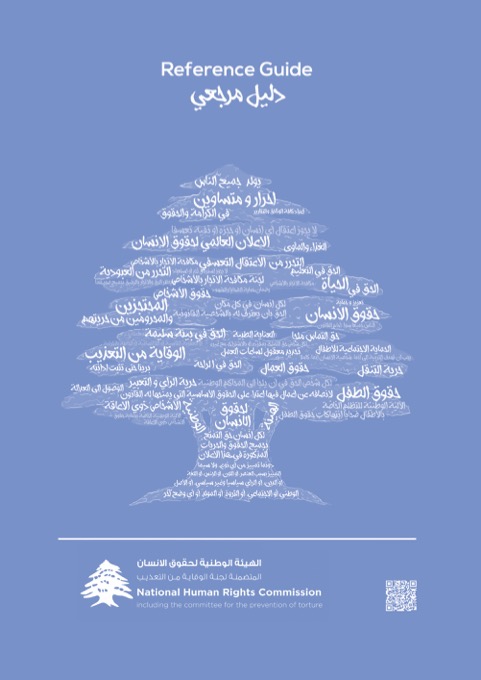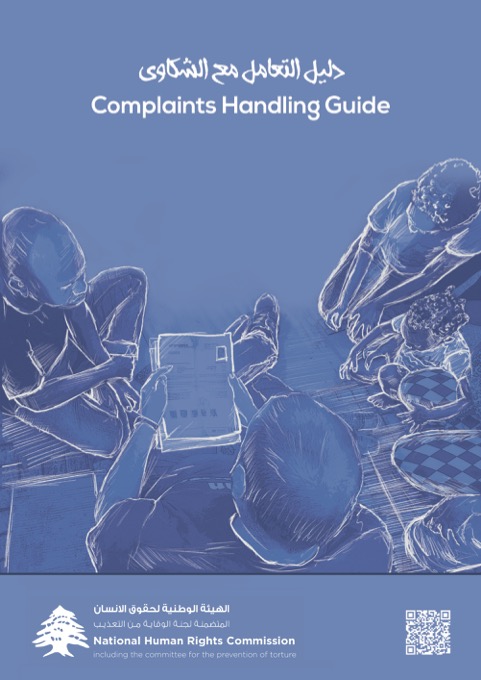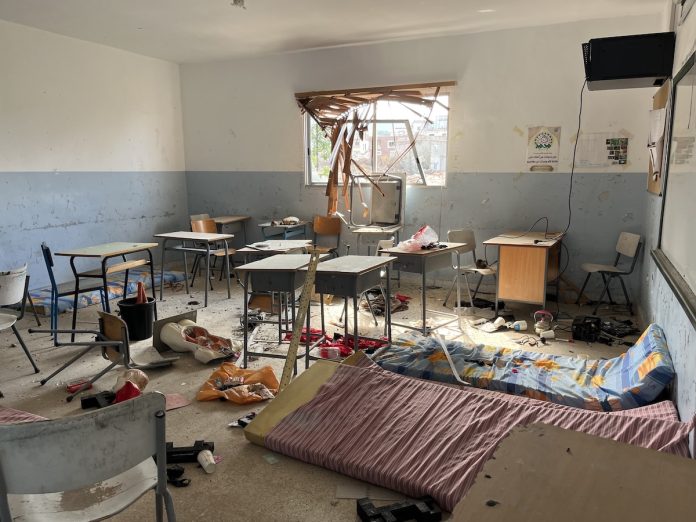In the shadow of war, where ceasefires flicker and diplomatic solutions stall, a quieter devastation unfolds—one that is etched not in the language of military strategy, but in broken chalkboards, shattered laptops, and children’s silence.
Between September and November 2024, as hostilities intensified between Israel and Hezbollah, Israeli ground forces occupied public schools across southern Lebanon. What followed, according to a recent investigation by Human Rights Watch (HRW), amounts not only to military trespass, but to war crimes.
“They came not just as soldiers, but as vandals,” said Lama Fakih, Middle East and North Africa Director at Human Rights Watch. “Schools were not merely used—they were pillaged, defaced, and in some cases, systematically destroyed.”
Schools Turned Battlegrounds
The HRW report reveals that at least three schools in Naqoura, Yarine, and Aita al-Shaab were occupied by Israeli forces, leaving behind a trail of destruction. Photos and videos published by HRW show scenes of chaos:
-
At Naqoura Intermediate Public School, laptops lie smashed on the classroom floor, while blackboards are scrawled over with military graffiti.
-
In Yarine, walls bear the emblem of Israel’s notorious Golani Brigade, surrounded by destruction that seems more deliberate than incidental.
-
At Aita al-Shaab, investigators found a shock tube, a demolition device typically used in controlled explosions—a grim indicator of intentional sabotage.
“There is no military justification for defacing classrooms or destroying educational tools,” HRW stated, emphasizing that such acts violate the laws of war.
A Crisis within a Crisis
For Lebanon’s children, the war’s impact is compounded by an already devastated education system. Since the 2019 economic collapse, students have suffered over six years of disrupted schooling. Remote learning is rare. Electricity is unreliable. Teachers are underpaid. Now, war has added another cruel layer of trauma and deprivation.
“Our children are not only missing school—they’re being robbed of their futures,” said Amal Chahine, a teacher in southern Lebanon who visited one of the vandalized sites in March 2025.
An Urgent Call for Action
HRW’s report urges both the Lebanese government and international donors to prioritize the rebuilding of critical education infrastructure. But rebuilding must not fall into the same traps of corruption and mismanagement that have plagued Lebanon’s public sectors.
Transparency, accountability, and community involvement must guide all reconstruction efforts. With a new academic year approaching and many schools still in ruins, time is not on Lebanon’s side.
🔍 HRW has released an 8-minute video documenting the damage and calling for international accountability. View it here:
🎥 Watch the video clip
هذه المقالة متاحة أيضًا بـ: العربية (Arabic) Français (French)



